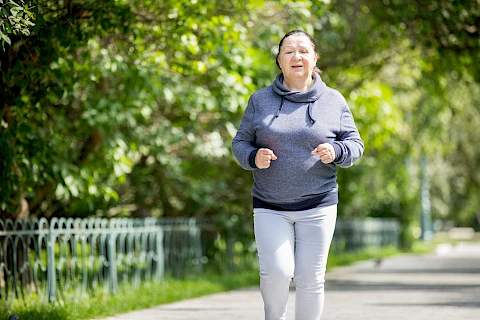
As people grow older, maintaining a healthy cholesterol level becomes increasingly important for overall well-being. High cholesterol can lead to serious health issues like heart disease and stroke, which are significant concerns for seniors. By taking proactive steps to manage cholesterol, caregivers can help their senior loved ones maintain a better quality of life.
More About Cholesterol
Cholesterol refers to the fatty substance found in our blood. Our bodies need some cholesterol to work properly, but too much can be harmful. Two types of cholesterol exist: LDL and HDL. LDL is deemed the bad version because it can build up in the walls of arteries and lead to heart disease. HDL is called the good version because it helps remove LDL cholesterol from the arteries.
High cholesterol is particularly risky for seniors. It can lead to heart attacks, strokes, and other serious health issues. That's why managing it is pivotal.
Diet Tips for Lowering Cholesterol
One of the best ways to manage cholesterol is through diet. Incorporate heart-healthy foods into their diet, which include leafy greens, citrus fruits, and berries. Whole grains and lean proteins are also worthwhile. Help them avoid saturated fats, trans fats, and excessive salt and sugar. Processed foods and full-fat dairy products should be skipped.
Plan meals ahead of time, choose healthy snacks like nuts or fruit, and cook at home as much as possible.
Exercise and Physical Activity
Exercise is another fundamental component in managing cholesterol. It helps lower LDL cholesterol and raises HDL cholesterol. Exercise helps maintain a healthy weight and reduces the risk of heart disease.
For seniors, suitable exercises include walking, swimming, and light strength training. Walking is a low-impact activity that can be done almost anywhere. Swimming is great for those with joint pain as it provides resistance without strain. Light strength training helps build muscle, which can improve overall health.
It’s good to create a consistent exercise routine. Aim for at least 30 minutes of physical activity per day. Break this into smaller chunks if needed. Consistency is best, so find activities that your loved one enjoys.
Medication Management
Sometimes, diet and exercise alone aren't enough. Medications can also help manage cholesterol levels. Taking the right medications at the right time ensures effectiveness. Common cholesterol-lowering medications include statins, bile acid sequestrants, and cholesterol absorption inhibitors.
As a caregiver, you can help ensure medication compliance by setting up a daily medication schedule, using pill organizers, and setting reminders. It's also helpful to keep a list of medications and dosages.
Monitoring and Regular Check-ups
Regular screenings and check-ups help manage cholesterol effectively. Doctors can monitor cholesterol levels and adjust treatments if needed. Caregivers can assist by helping schedule appointments, accompanying their loved ones, and taking notes during visits.
Keep track of cholesterol levels and progress. It’s smart to maintain a log of test results, medications, and lifestyle changes. This can be useful during doctor visits.
Get Guidance and Care From Senior Helpers Dunn
Managing cholesterol in seniors involves a combination of a healthy diet, regular exercise, medication adherence, and routine check-ups. As a caregiver, your support makes a significant difference in your loved one's health.
Remember, you're not alone in this journey. At Senior Helpers Dunn, we offer professional assistance to help manage cholesterol and overall senior health in Johnston County, Cumberland County, Robeson County, and nearby. Contact us today to ensure your loved ones receive the best care possible.